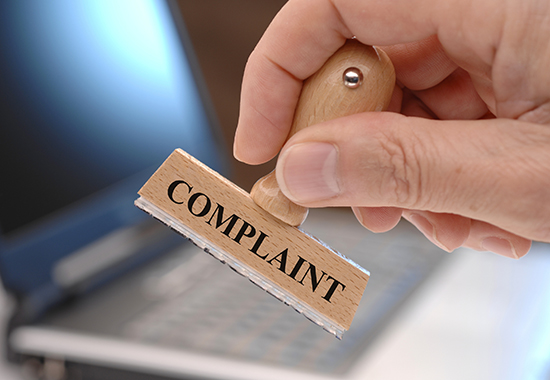In this blog post, Pooja Vasandani, a student pursuing a Diploma in Entrepreneurship Administration and Business Laws from NUJS, Kolkata, describes the procedure to complain about irregularities to the Registrar of Companies.
Introduction
Registrars of Companies (ROC) appointed under Section 609 of the Companies Act covering various States and Union Territories are vested with the primary duty of registering companies, and LLPs floated in the respective states and the Union Territories ensuring that such companies and LLPs comply with statutory requirements under the Act. These offices function as registry of records, relating to the companies registered with them, which are available for inspection by members of public on payment of the prescribed fee. The Central Government exercises administrative control over these offices through their respective Regional Directors.[1]
The Registrar of Companies (RoC) plays a pivotal role in facilitating and promoting business culture. No company, under the Companies Act, 2013, can come into existence without the approval of the RoC. The registrar provides the certificate of incorporation, which in law, is considered as conclusive proof of the existence of a company. A company, once born, cannot die unless its name is struck off the register of companies. The office of the RoC is a huge repository of data on more than six lakh companies that operate in India.
The Companies Act, 2013, regulates the registration of Companies and Limited Liability Partnership (LLP) in India and Rules made thereunder and is administered by the Ministry of Corporate Affairs through offices of the Registrar of Companies (ROC) in each State.
Registrars of Companies (ROC) at different states and Union Territories have the primary duty of registering Companies and LLPs floated in their respective jurisdiction and ensuring that such Companies and LLPs comply with statutory requirements under the Companies Act and Limited Liability Partnership Act.
These offices function as registry of records, relating to the companies and LLPs registered with them, which are available for inspection by members of public online via www.mca.gov.in.
How is a company registered by the RoC?
A company cannot come into existence on its own. It needs a certificate of incorporation, which is issued by the RoC after completion of various statutory formalities. As part of the drill, the promoters are required to submit various documents to the RoC which include the Memorandum of Association (MoA), Articles of Association (AoA), pre-incorporation agreement for appointment of individuals as directors/ managing director and a declaration by an authorised person (a high court lawyer or a chartered accountant) that all the requirements of law relating to registration have been complied with.
After verifying the documents, the RoC enters the name of the company in the register of companies and issues a certificate of incorporation. The RoC also issues a certificate for commencement of business. All public limited companies are required to obtain this certificate before starting the business.
The association of a company with the RoC never ends. For instance, a company may need to change its name, its registered office or objectives. In all instances, it will have to intimate the RoC after completion of the prescribed formalities.
Why should the RoC keep such information?
A company is an artificial person and has an existence that is independent of its members and promoters. It also has certain attributes. The MoA defines these attributes—like name, registered office, objects, liability, capital, etc. The objects clause states why the company exists and what it can do. A company cannot undertake activities not authorised by the objects clause. For instance, Indian Oil Corporation (IOC) cannot start constructing hotels without making appropriate changes in the objects clause and informing the RoC.
The information is significant for persons wishing to deal with a company. Legally, any person dealing with a company is supposed to know about its business, the board of directors, registered office, capital, liability, directors, powers of directors, etc. If a person overlooks these basic facts, he does so at his peril. The company cannot be held liable for the unauthorised acts of its directors. Anyone can seek information about a company from the RoC after paying the prescribed fee.[2]
Filling complaints against a Company
In the case of any default by a Company, an aggrieved person can file a complaint against the said company or an investor with the Registrar of Companies or with the Ministry of Corporate Affairs.  Under sub-section (4) of Section 206 of Companies Act, 2013, a representation can be made by “any person” alleging that the business of the company is being carried on for a fraudulent or unlawful purpose or not in compliance with the provisions of this Act or the grievances of investors are not being addressed.
Under sub-section (4) of Section 206 of Companies Act, 2013, a representation can be made by “any person” alleging that the business of the company is being carried on for a fraudulent or unlawful purpose or not in compliance with the provisions of this Act or the grievances of investors are not being addressed.
Under sub-section (1) of Section 206 also, the RoC sends out a written notice to a company on the basis of “any information” received by him. Hence, the RoC has the power to carry out an inquiry into such allegations irrespective of the identity of the person complaining against the company. The only requisite is that of the satisfaction of the Registrar; he should be satisfied that such furnishing of information/ explanation or inquiry is necessary.
Steps to file a complaint
Now with technology expanding as fast as it is, filing a complaint is as easy as filing a form online on the Ministry of Corporate Affairs website.
- On MCA Website go on MCA Services > Complaints, there you will find an option of Create Investor Complaint; click on that it will provide you with Investor Complaint Form. Fill in all the necessary information and submit your complaint online.
- There is also an option of Create Service Related Complaints, clicking which you can fill out the form and submit your complaint online.
- The form has to be filed as per the guidelines mentioned in the form and has to provide all the mandatory data required.
- Once done with the form fill up, one has to complete the Check Form and Pre-scrutinize the form. While doing this, the internet connection must be proper, and he/ she must be connected with the MCA21 portal.
- Then log in to MCA21 portal using the registered user login id created while filing the form.
- Once logged into the MCA21 portal, use the E- form upload functionality under the E- Forms tab on the portal, to upload the Investor Complaint Form.[3]
- Once the form is uploaded, the complainant must note down the Service Request Number for any future complaints.
The abovementioned steps must be followed to file a complaint against a company or an investor of the company. Upon seeing the form, one can say that the form is very detailed with the types of complaint. It provides a good scope of complaints, which can be filed under its umbrella. For example, one can complain about, Non-filing of return of cessation of a director in Form 32, Shares or dividend, Debentures or bond, Fixed deposits, Miscellaneous non-receipt, Director aggrieved by his cessation in the company, others like the complaint of serious nature.
Filing a complaint with the RoC is exhaustive in nature covering every aspect related to a company or investor. In the case of serious complaints related to the same, a separate option is present. Thus this is the most effective and efficient mode of filing complaints and redressal against a company or investor.
Other modes of Redressal
One could, on the contrary, go to the Securities and Exchange Board of India for collective investment schemes. However, this was regulated by SEBI till January… (these powers ceased to exist after January). Company deposits can be regulated by various authorities like deposit schemes of manufacturing companies is regulated by the Ministry of Corporate Affairs (MCA) and schemes of non-banking financial companies (NBFCs) are overseen by the Reserve Bank of India.
Sajid Mohammed, Partner, PDS Associates, says there is no method to ensure the deposit amount is returned. All a depositor can do is put pressure on the company to pay. Company deposits are unsecured instruments and, therefore, in case the company defaults, these depositors are last in the scheme of payments. Despite this, one has various options to raise the matter with authorities. A complaint can be filed with the MCA online; one can keep a track of these complaints. You can file a complaint with the Company Law Board, or file a civil suit.
The RBI Act, 1934, empowers the CLB to order the repayment of deposits accepted by an NBFC. For this, one has to submit Form 4 in duplicate, along with a photocopy of the deposit receipt issued by the company and a demand draft of Rs. 50 at any of the CLB benches in New Delhi, Kolkata, Mumbai, and Chennai.
An offence related to acceptance of deposits is a cognisable offence under the Code of Criminal Procedure, 1973. For such grievances, you can also approach the consumer court under Section 12 of the Consumer Protection Act. Remember to include relevant papers that substantiate your claim. Depositors can also file a suit under Section 245 (not notified yet) of the Companies Act, 2013, before the National Company Law Tribunal.
“Addressing your grievance to MCA, along with the Registrar of Companies, is the best option. In the case of listed companies, SEBI can also be addressed in the complaint,” suggests Vaidyanathan. If a company defaults, you might be left in the lurch. A case in point is the recent default on deposit payments by a couple of Yash Birla Group companies—deposits of Rs 214 crore haven’t been paid to about 8,000 investors. Here, the redressal mechanism isn’t very clear. Ramesh Vaidyanathan, a managing partner at Advaya Legal, says, “Investors can file complaints under the Maharashtra Protection of Interests of Depositors Act. This Act allows arrest and attachment of properties to protect depositors/investors.”[4]
An example of the manner in which the complaint can be filed is given below:-
[divider]
References:
[1]http://www.mca.gov.in/MinistryV2/contact.html
[2]http://archive.financialexpress.com/news/a-look-at-the-roc-and-its-role/150970/2
[3]http://www.mca.gov.in/MinistryV2/complaints.html
[4]http://www.business-standard.com/article/pf/dealing-with-company-deposit-frauds-114021900482_1.html
 Serato DJ Crack 2025Serato DJ PRO Crack
Serato DJ Crack 2025Serato DJ PRO Crack











 Allow notifications
Allow notifications



Good day,
I would like to report fraudulent transactions from above company.
I bought a 1998 Freightliner FLB truck from Mr. Andre Peremore
for the amount of R250 000,00 on 08/08/2018
Supposed to get the registration document (RC 1)
and the contract the next day.
I have not received it until today.
I found out the next day that he owes Cummins R121 000,00 for repairs
on the truck.
They will not release the truck until he pays them.
The truck is standing by them for 8 years already.
He also owes me R105 200,00 for work carried out to him.
Further he also defrauded me with trailer hire substracted from my
invoices.
But I used my own trailers.
I have all the invoices and proof of payment for the truck etc.
I further know about fraudulent transactions about him totalling over 2 million rand.
Please advice what I can do about this.
Regards
Mr. E. Steenkamp
Cell 084 751 9998
I registered my business last week trading as SE Logistics.